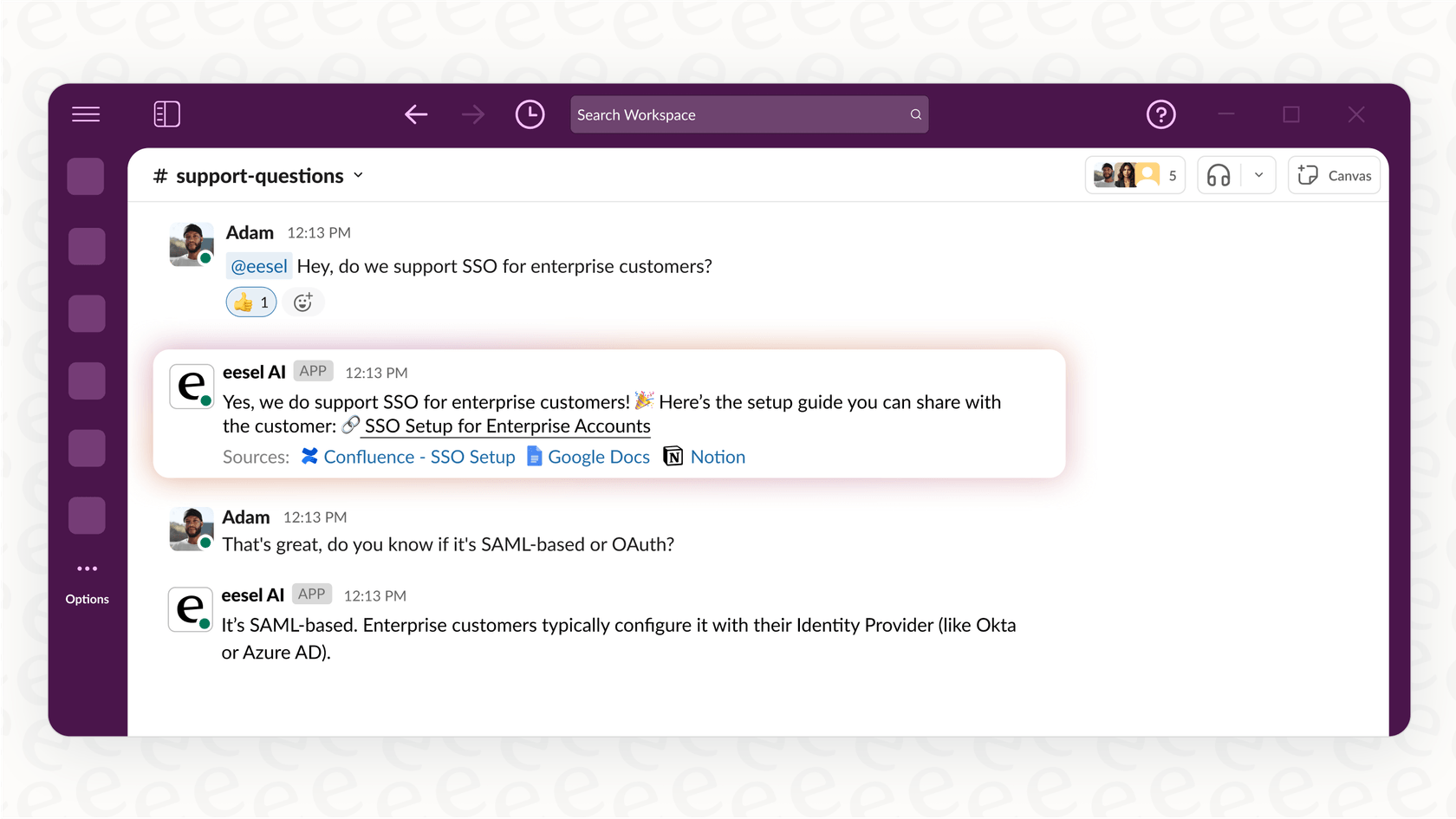
We’ve all been there. You’re running a Magento store, and you know you have the products people are looking for, but your site search just can't seem to connect the dots. A customer types in "summer dress for a wedding" or "waterproof hiking boots under $100," and your store serves up a random list of items. Or worse, a dreaded "no results found" page.
It's a frustrating loop that quietly costs you sales every day.
This is exactly the problem that Magento AI semantic search was built to solve. It’s a bit of tech that goes way beyond matching keywords to figure out what your customers actually mean.
In this guide, we'll walk through what AI semantic search is, get a simple breakdown of how it works, see how its impact stretches far beyond the search bar, and figure out how you can choose the right setup for your business in 2025.
What is Magento AI semantic search?
At its core, Magento AI semantic search uses Artificial Intelligence (AI) to understand the intent behind a search, not just the specific words typed into the box.
Think of it as the difference between a new trainee and your best store assistant. If you ask the trainee for "something to wear to a fancy dinner," they might just search the inventory for products with the word "fancy" in the title. Your seasoned assistant, on the other hand, instantly knows you're talking about cocktail dresses, nice dress shirts, or elegant accessories. They use context to give you what you need.

A traditional search function is the trainee; AI semantic search is your expert assistant.
The difference becomes pretty obvious when you put them side-by-side.
| Feature | Traditional Magento Search | Magento AI semantic search |
|---|---|---|
| How it works | Matches the exact words in your product titles. | Understands synonyms, context, and what the user is trying to do. |
| Query Example | "red shoes" | "shoes that would match my red dress" |
| Flexibility | Gets tripped up by typos, different phrasing, and longer questions. | Easily handles typos, complex phrases, and even image-based searches. |
| Results | Often gives you irrelevant items or a blank page. | Delivers product suggestions that actually make sense. |
The whole point is to close the gap between how your customers talk and how your store searches. When you get this right, people find what they're looking for faster, have a better experience, and are far more likely to buy something.
How Magento AI semantic search actually works (and why it matters for Magento)
You don’t need a PhD in data science to get the gist of how this tech operates. It really boils down to a couple of key ideas that have some big implications for your store.
From keywords to context: A Simple breakdown of Magento AI semantic search
It all starts with teaching a computer to understand language a little more like we do.
-
Natural Language Processing (NLP): This is just a fancy term for the AI that helps machines read and make sense of human language. It’s what allows a search engine to figure out that "sneakers" and "trains" mean the same thing, or that "water-resistant" is related to "waterproof." It can even handle slang and typos without breaking a sweat.
-
Vector Embeddings: Okay, this is the really clever bit. Imagine turning every product and idea in your store into a point on a giant map. That’s basically what vector embeddings do. Things with similar meanings, like "sofa," "couch," and "loveseat," all get placed close together in the same neighborhood on this map. So when a customer searches for "couch," the AI doesn't just look for that exact word; it looks for products in that general area of the map, giving them much better results.

The problem with most Magento search extensions
Lots of third-party Magento extensions can bolt semantic search onto your store's search bar. And while that's a decent first step, it creates a brand new problem: a knowledge silo. All that amazing intelligence gets trapped inside the search function. It can't be used by your customer support team, your website chatbot, or anywhere else for that matter.
These extensions are point solutions. They fix one thing, but they often require a ton of technical work to install and maintain. You might find yourself needing to configure them with specific databases and keeping a developer on standby just to keep the lights on.
A much better way to think about it is with a unified AI platform. Instead of just powering one feature, a platform like eesel AI plugs into all your knowledge sources, your Magento catalog, your help docs, past support tickets, you name it. This creates a single, central "brain" for your whole business that can be put to work everywhere.

The business impact of Magento AI semantic search beyond the search bar
When your AI's intelligence isn't stuck in a silo, you can start solving much bigger problems across your entire business. Here’s what that actually looks like.
Powering a genuinely helpful AI chatbot
Picture this: a customer is on a product page and opens your chat widget. They ask, "Do you have this in blue, and can you ship it to Canada?"
A basic chatbot would throw its hands up and immediately escalate to a human agent. A simple search extension is no help here, either. But a unified AI platform, like the eesel AI Chatbot, uses its deeper understanding to solve the whole problem at once. It can check your integrated Magento or Shopify catalog for different colors while also checking your shipping policy in your Zendesk help center to answer both questions in a heartbeat.

Automating customer support after the sale
Let's say a customer emails your support team: "My new blender is making a weird buzzing noise. What do I do?"
Normally, that ticket would just sit in a queue waiting for someone to get to it. But the eesel AI Agent gets that "weird buzzing noise" is a troubleshooting question. It semantically searches through all your past tickets and help articles about that blender and gives an instant, accurate answer based on what’s worked for other customers. It learns from your team's past work to solve problems without anyone needing to lift a finger.
Giving your human support agents a boost
Now, imagine a support agent is dealing with a tricky question about a product warranty. They'd usually have to dig through multiple systems, like your Confluence pages, internal docs, and the help center, just to piece together the right answer.
The eesel AI Copilot gets rid of all that manual work. It uses that same semantic understanding to instantly draft a perfect reply for the agent, pulling information from all your connected sources in seconds. This keeps your answers consistent and makes your whole team a lot faster.

How to choose the right Magento AI semantic search solution
When you're ready to bring in AI search, you've really got two paths you can go down. One is a quick fix, and the other is a long-term strategy.
Approach 1: Standalone Magento extensions
You’ll find plenty of extensions out there, like Webkul Semantic Search or Amasty Advanced Search, designed to improve your on-site search bar. They have their place, but they also have some pretty big limitations.
-
Pricing & Silos: These extensions usually have a one-time fee (Webkul's is $389, for example), but that doesn't include potential costs for installation or ongoing maintenance. And as we mentioned, their biggest drawback is the knowledge silo. The AI is stuck in the search bar and can't help you anywhere else.
-
Tough Implementation: The setup can be trickier than it looks. Some extensions require developer help and specific server environments just to get running. It's rarely a simple plug-and-play solution.
-
No Way to Test: You have no real way of knowing how well these extensions will work on your store until after you've bought and installed them. You can't run a simulation on your actual data to see if it’s a good fit.
Approach 2: A unified AI platform like eesel AI
This is the smarter, more modern way to go. You're not just buying a single feature; you're investing in an AI layer that can help your entire business. This is where eesel AI is different.
-
Go live in minutes, not months: Thanks to a self-serve setup and one-click integrations, you can get started without talking to a single salesperson or waiting on a long development project.
-
Test with confidence: eesel AI has a powerful simulation mode. You can test the AI on thousands of your past support tickets to see exactly how effective it will be. This lets you calculate your potential ROI before it ever talks to a live customer.
-
You're in complete control: You get to decide exactly what kinds of questions the AI handles and when it should pass things over to a human. It's not an all-or-nothing system; you can roll it out gradually as you get more comfortable.
-
Clear and predictable pricing: Our plans are based on the features you use, not how many tickets the AI resolves. That means no surprise bills after a busy month.

Your next-gen Magento store starts with Magento AI semantic search
Magento AI semantic search is a seriously powerful tool, but its real value is unlocked when it’s not trapped in your search bar. Point solutions might give you a temporary boost, but they can't really transform how your business operates.
The best strategy is to build a single, intelligent "brain" that learns from all your business knowledge, one that's there to help customers and employees at every step. And getting this set up doesn't have to be some massive, month-long project. With the right platform, you can start seeing the benefits in minutes.
Ready to see how a unified AI platform can transform your Magento store? Get started with eesel AI for free.
Frequently asked questions
Magento AI semantic search uses Artificial Intelligence to understand the intent behind a customer's search query, rather than just matching keywords. It leverages Natural Language Processing and vector embeddings to comprehend context and deliver more relevant product results, even with complex or vaguely phrased searches.
Unlike traditional search, Magento AI semantic search can interpret synonyms, understand natural language, and grasp the underlying meaning of a query. This leads to customers finding the products they truly want faster, significantly reducing "no results found" pages and improving their overall shopping experience.
Yes, its utility extends far beyond. A unified platform approach allows Magento AI semantic search to power AI chatbots for instant customer service, automate resolution of common support tickets, and provide human agents with instant, accurate information pulled from all your integrated knowledge sources.
The effectiveness of Magento AI semantic search stems from Natural Language Processing (NLP), which helps machines understand human language, and vector embeddings. Vector embeddings convert product data and search queries into numerical representations, allowing the AI to identify items with similar meanings or contexts.
Standalone extensions for Magento AI semantic search often create "knowledge silos," meaning the AI's intelligence is confined to the search bar and cannot benefit other business functions. They can also involve complex setup, ongoing maintenance, and typically lack the ability to test their effectiveness on your specific data before full deployment.
A unified AI platform centralizes all your business knowledge, allowing Magento AI semantic search capabilities to extend across your entire operation, from customer-facing chatbots to internal support tools. This approach offers easier implementation, predictable pricing, the ability to test ROI before deployment, and ensures consistent, intelligent responses everywhere.
Share this post

Article by
Kenneth Pangan
Writer and marketer for over ten years, Kenneth Pangan splits his time between history, politics, and art with plenty of interruptions from his dogs demanding attention.







